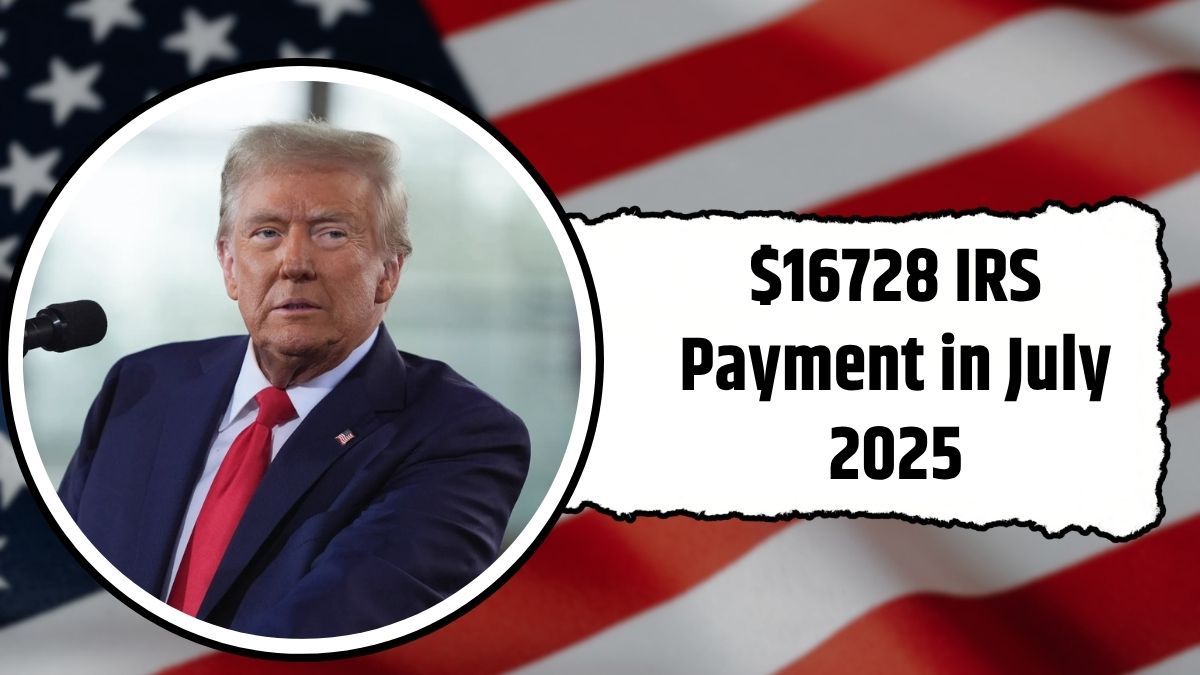Across Facebook, YouTube, and TikTok, attention-grabbing headlines are claiming that the IRS will issue a $16,728 payment to some Americans in July 2025. With inflation still pinching pockets, it’s no surprise these posts have caught fire.
But before you plan how to spend that money, here’s the reality: there is no surprise IRS payment of $16,728 coming this month.
The $16,728 Claim Explained
The widely shared $16,728 figure is not based on any new government benefit or IRS announcement. Instead, it comes from an often-used hypothetical example used by financial experts and newsletters to explain how delaying Social Security can boost annual payouts.
According to the example:
If someone delays claiming Social Security benefits until age 70—instead of beginning at age 62—they could receive up to $16,728 more per year in lifetime benefits.
However, this increase is not a lump-sum payment. It is spread over monthly payments throughout the year. So, despite the real math, the idea that $16,728 will suddenly land in your bank account is completely false.
What the IRS Is Actually Paying in July 2025
While the viral payment rumor isn’t true, the IRS is processing legitimate tax-related payments in July, including:
2024 Tax Refunds
If you filed your 2024 tax return late—especially between June 16 and June 30—your refund may be arriving between July 4 and July 17 (for e-filed returns). If you filed by mail, expect your refund between July 11 and July 24.
Interest on Delayed Refunds
If the IRS takes more than 45 days to issue a refund, you’re legally entitled to receive statutory interest, which is currently set at 7% annually. This interest is added to your refund, not issued separately.
Recovery Rebate Credit
If you missed claiming the third-round stimulus payment, you might have included it as a Recovery Rebate Credit in your 2024 return. This credit will be added to your regular refund, not given out as an independent payment.
Clean-Energy Refunds
Under the Inflation Reduction Act, certain tax-exempt organizations and businesses are now receiving clean-energy-related refunds. However, individual households are not included in these disbursements.
Don’t Be Fooled: No IRS Bonus Is Coming
The $16,728 amount making the rounds on social media is not an official IRS benefit. There is no one-time IRS check for this amount scheduled for July 2025. If you’re unsure about your refund or eligible credits, use the “Where’s My Refund?” tool at IRS.gov, or consult a licensed tax advisor.
Real Ways to Legally Boost Your Social Security Benefits
While there’s no magical IRS payment headed your way, there are legitimate ways to increase your Social Security benefits. These require strategic planning, but they can significantly impact your monthly income in retirement.
Work at Least 35 Years
Social Security benefits are calculated based on your highest 35 years of earnings. If you work fewer years, the remaining ones count as zeros, which lower your average and overall benefit.
Increase Late-Career Earnings
Earnings in your final working years can replace lower-earning earlier years in your record. If possible, boost your income in your late 50s and 60s to raise your benefit.
Delay Claiming Until Age 70
You can begin collecting benefits as early as age 62, but waiting increases your monthly payout. Delaying until age 70 can result in an 8% increase per year, maximizing your retirement income.
Coordinate With Your Spouse
If you’re married, a well-planned filing strategy can boost your household’s overall benefit. Spousal or survivor benefits can be optimized based on when each partner files.
Minimize Taxes on Benefits
If your combined income exceeds certain thresholds, your Social Security benefits may be taxed. Reducing your taxable income—through smart withdrawals from retirement accounts or other planning—can help you keep more of your money.
Why Social Media Rumors Like This Spread
It’s not the first time—and likely won’t be the last—that financial misinformation spreads online. Bold claims of surprise payments, automatic deposits, and government bonuses can be enticing, especially during periods of economic uncertainty.
However, it’s important to stay skeptical of viral headlines. Always verify payment claims using official government sources like IRS.gov or SSA.gov, and consult a financial professional if in doubt.
FAQs
Q1. What is the $16,728 IRS payment everyone is talking about?
This number comes from a hypothetical Social Security example, showing how delaying benefits can increase annual payouts. It is not a real IRS payment being distributed in July 2025.
Q2. Is there a $16,728 check coming this July?
No. The IRS is not sending out a $16,728 payment in July 2025. Any claims saying otherwise are false or misleading.
Q3. How can I increase my Social Security payments?
You can legally boost your payments by working for at least 35 years, delaying retirement, increasing late-career income, and coordinating benefits with your spouse.







